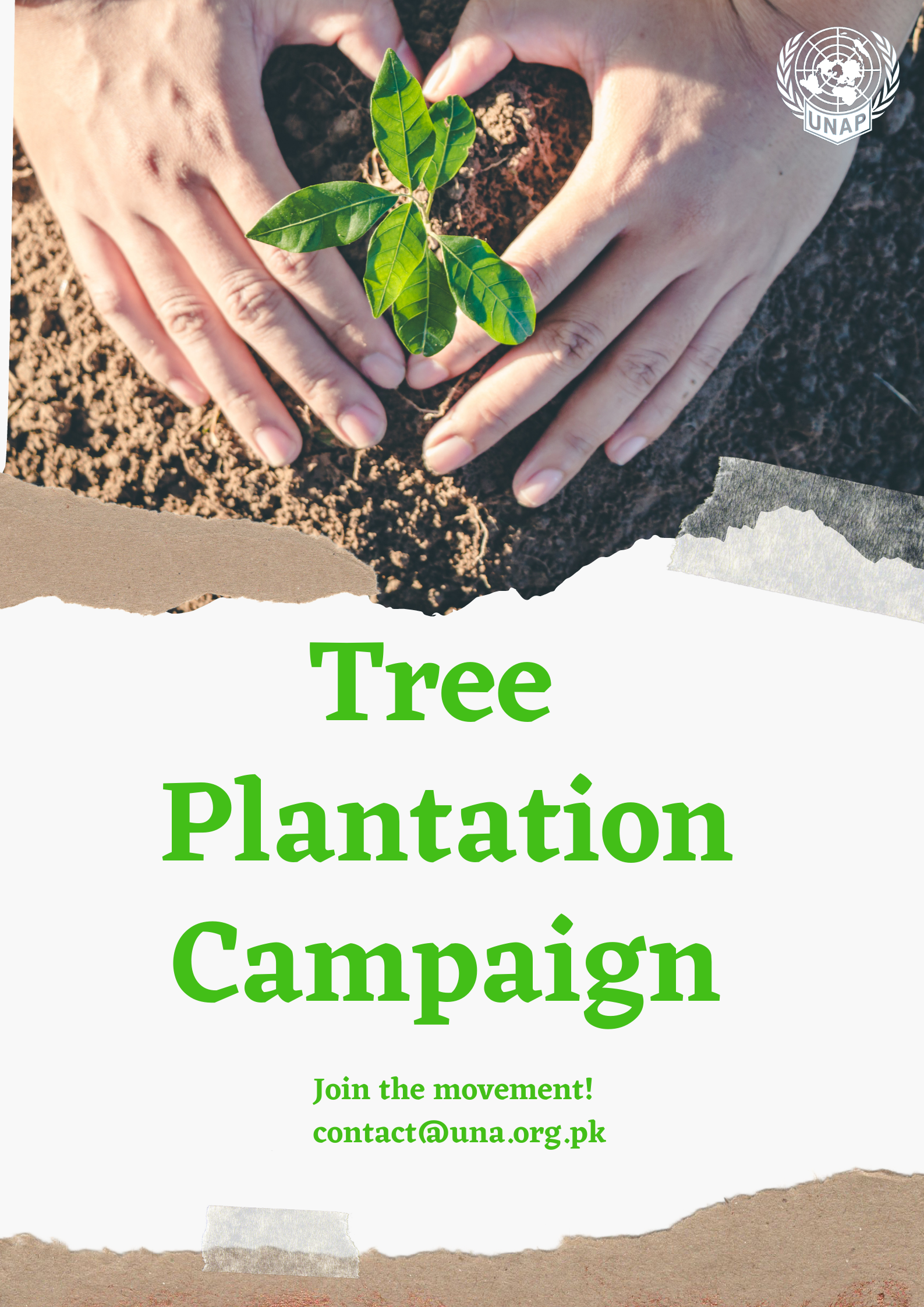Pakistan’s one of the youngest and fastest developing countries of the world. Karachi is among the most polluted cities in the world. The air of the city is polluted with high levels of lead and cadmium that pose a grave risk to public health, says a recent study that also points out that the average concentration of these trace metals found in residential areas of Karachi is higher than those found in Delhi and Beijing.
In another environmental study, the research team has found that Karachi, Pakistan, holds the world’s title for ozone. Of the nearly 300 measurements collected over 1 year, roughly a third exceeded what the researchers considered a “harmful” threshold for ozone, which can lead to smog. UNAP is planning a project of plantation and forestation in the province of Sindh. It will be a contribution to SDG 13 (Climate Action) which aims to conserve and restore the use of terrestrial ecosystems such as forests, wetlands, drylands and mountains by 2020. Halting deforestation is also vital to mitigating the impact of climate change. It calls for action to reduce the high level of air pollution in the cities and villages.
| QUICK FACTS | |
| Duration: | 2020 – 2021 |
| Location: | Karachi, Sindh |
| Funding partners: | Daraz Pakistan, Shan Foods Pvt. Ltd., Vital Tea |
| Project Details: | Download Full Project Brief |
| Further Details: | contact@una.org.pk |
QUICK FACTS
Duration:
2020 – 2021
Location:
Karachi, Sindh
Funding partners:
Daraz Pakistan, Shan Foods Pvt. Ltd., Vital Tea
Project Details:
Download Full Project Brief
Further Details:
contact@una.org.pk
Programme Outputs
- Considering the land and forest situation in Sindh, especially the urban area of Karachi, a plantation project is planned to improve the environment and ecosystem of Karachi and Umerkot District, which is currently under the threat of a major environment threatening factor: air pollution.
- There will be four (4) phases of the plantation project, each phase comprising of drives and campaigns to plant 5,000 trees in Karachi and rural areas of Sindh. The project will span across one year.
- Facilitate behavioural changes and practices to improve financial outcomes; including financial wellbeing through increased savings, improved debt management, perceived financial stress or satisfaction.
- The project will help meet the following targets of SDG 15 – Climate Action.
- By 2020, ensure the conservation, restoration and sustainable use of terrestrial and inland freshwater ecosystems and their services, in particular forests, wetlands, mountains and drylands, in line with obligations under international agreements.
- By 2020, promote the implementation of sustainable management of all types of forests, halt deforestation, restore degraded forests and substantially increase afforestation and reforestation globally.
- By 2030, combat desertification, restore degraded land and soil, including land affected by desertification, drought and floods, and strive to achieve a land degradation-neutral world.

